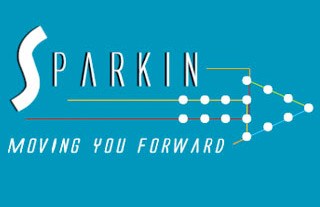Syncing timelines for Success – Your Employer’s and your own
About to accept or start a new job – Why you might not be doing what you expected to be doing, at least not for a while.
You have reached a point in your current job where you are stuck, in terms of feeling as though you are no longer progressing.
Practically, the promotion you want is blocked or, you’ve worked on the same business for three years and the agency doesn’t want to move you or, you’ve worked on all the major accounts of the agency.
You might be frustrated because you don’t feel you can learn anything new, meanwhile you see the world and your peers, all progressing to bigger and better things.
Or, you’re dealing the nightmare scenario, a difficult boss or client that is making your life a living hell. You leave as nothing is likely to change any time soon.
You are ready to make a move. The good news is, you are presented with seemingly, a great career building opportunity. Team, culture, accounts, strategic approach all check out.
At this stage what could go wrong?
You clearly know better than anyone what is attractive to you. What role would allow you to excel, right? Well, yes. And with the information you have everything stacks up. So far so good.
Typically you are hired to address specific client needs but sometimes you are recruited more for where the agency aspires to be versus where the agency is now.
Most individuals will accept at face value, the reason why they are being hired. And most employers will hire specifically for the reasons they say they are hiring.
In all situations’ you are being hired for a recognized skillset. But, though your future employer knows what you can do, they may be hiring you for reasons slightly different to those you signed up for.
Key for you, what job do you want to do now, what’s mission critical versus those things that are ‘nice-to haves’? And do your priorities reconcile with the work your future employer does and expects you to do immediately, versus at some point in the future. Or, is there an understanding that there is a timeline before you get to really use your expertise in the way you want to. Sometimes, there is no understanding!
A classic example, you are hired by a digital agency whose work may be downstream of the lead creative agency. Your new employer hires you not because of an epiphany in the importance of creative strategy rather you are hired to act as a counterbalance to creative strategist working for the lead agency! It’s a defensive hire even if represented otherwise.
The most obvious (and critical) example of a disconnect between employee/employer timelines, intended or otherwise, occur when employers are hiring at the vanguard of organizational or business transformation.
You are promised that your expertise is key to moving the agency in the direction of that change. The problem is that the organization might not be ready for this planned evolution.
Organizational changes that needed to happen prior and concurrent to your hire did not happen or are happening but at a much slower pace. The result for you is, what you hoped to achieve in your new role might take two years versus two months.
A further threat for you, gate keepers/the old guard that might be sitting on agency revenue, oppose the change you bring, extolling what has worked in the past. These individuals or cliques may be perceived as too ‘important’ (despite the fact you were hired to change things) to challenge due to fear if they left or are fired, the revenues they are sitting on might go with them.
There will always be potential challenges beyond yours and to a large extent the agency’s control. It’s key for you to know that your expertise aligns with the organizational needs and ambition of your new employer for the medium but also for the short term.
Having a sense of who key stakeholders are is a given but knowing that they support your expertise is vital. Two action steps you should pursue at interview stage:
Have a few additional meetings beyond those you are directed to have; Ask a few more searching questions that you ordinarily might not ask. These two actions alone may be the difference between a poor move and a great career transition.
Ultimately, what makes your next career move truly redefining in a positive way, is not only clarity about your own objectives and those of your employer but to know that they and the key stakeholders of which they are a part, are aligned.
Following The Money Often Reveals The True Story
Aspiring job seekers, don’t be dazzled by the scenery! Save yourself from a bad job move and get to the reality of what a business actually does sooner rather than later. Inspiring recruiters may tell you what an employer aspires to be, about the new this or the new that division they are going to build which is great. But, you need the reality of what the experience is now. So the questions that get you closer to the truth orient around where your future employer ‘actually makes’ the bulk of its cash from versus where it ‘wants’ to make money. #SmartCareerMoves
Integrated Thinking and Polymaths?
More than ever, the agency world values integrated thinking; It needs creative polymaths
Think Da Vinci, Gallileo and Jobs, all polymaths or, ‘someone who has great and varied learning over complex bodies of knowledge…who can also solve complex tasks’.
Great creative strategists do this. With experience and vision beyond silos – not quantitative or qualitative approaches, digital or analogue, science or the arts – they bring together disparate ideas in new and exciting ways.
As ‘knowledge’ becomes cheap and accessible to all at the click of a button, inventive synthesis will be key. This skill will propel careers and push us up the value chain. Some find it innately but we can all improve.
The attached links may reveal something about the person you are, could or need to be.
Enjoy!
Stuart
Articles and commentary that might be of interest…
- Hidden talents – are you a polymath?
- Six Extremely Unique and Purpose Driven Polymaths
- Creative people’s brains really do work differently
- Talking Product & Polymaths with boomtrain’s CTO & Co-Founder
- How Creative Polymaths are Influencing Luxury Brands
- Why High-Skilled Freelancers Are Leaving Corporate Life Behind
- Where are the polymaths hiding?
- PR is not enough: we must all become polymaths to thrive
- Why 21st-Century Economy Needs More Polymaths
- Future of Work and Multipotentialites
Purpose Driven Brands and Strategy
The reason why anyone talks about next career steps is because of growth or a lack of it.
What is typically sought includes more: Variety, autonomy, leadership opportunity or most obvious, the opportunity to develop strategic skills and experience.
Daily conversations for me invariably arrive at the subject of meaningfulness or, business and brand purpose. Yes, it’s not just a millennial thing!
Your peers are increasingly seeking to use their strategic problem solving smarts in areas, on causes and with brands that promote experiences that have a positive impact on people and the world at large.
There are some amazing companies out there whose mission is not growth and profitability for the sake of growth and profitability. There are entities that want to do much more….
The attached links are a few examples that you might be interested in.
Enjoy!
Stuart
So What Makes a ‘trusted advisor?’
Being A Good Boss
People don’t quit their jobs, they quit their bosses. And usually when they cease to see a path for progression or growth for which a good boss is instrumental.
This edition of Narrate is about managing and being managed.
A great manager can make a huge difference to both your day-to-day experience as well as your long-term prospects, but a great manager is not automatic. Most managers lack training or formal guidance for the managerial role. Of course, a bad manager is awful.
“Nine times out of ten, when an employee says they’re leaving for more money, it’s simply not true. It’s just too uncomfortable to tell the truth.”
(Alison McMahon)
So how do we get better at this? Fortunately, there’s great material here. The attached links are aimed at making the task of managing a tad easier and being managed, a little more effective. If nothing else, a shared article might facilitate a conversation that needed to happen.
Enjoy!
Stuart
So What Makes a ‘trusted advisor?’
18 Executives Share Their Secrets To Being A Great Boss
5 Simple Ways To Be A Good Boss No Matter How Busy You Are
7 Leadership Style The Best Bosses Use
Want To Be A Good Boss? Start By Understanding Why You Want To Lead
Good Bosses Switch Between Two Leadership Styles
How To Be A Great Millennial Boss
14 Signs Your Employees Secretly Hate You
12 Things Not To Say Or Do Around Your Boss
Standout by Getting Your Employer Working For You Copy
Whilst working at your current agency you should consciously pursue experience, education and connections that enhance your distinctiveness as a business problem solver. You should do what you are paid to do (help optimize the agency of which you are part) but also remember that not also leveraging the agency to build your own value, is a wasted opportunity.
Don’t Regret What Was
It’s only once you cease to work for an agency that you appreciate the many things that provides, some obvious and some less so:
A job;A Team; Resources, (financial/creative); Access; Training; Experience; Exposure.
Your working in an agency can be great for the agency’s and its clients business. It should also be a positive step for your career growth.
The Connection between Great Work and Your Success
Does a happy client and grateful agency means you will have an optimized fast tracked career? Perhaps.
If you have are known for being an active team player, a proactive individual that helps to resolve client challenges and optimize opportunities, does this mean you will have a fast-tracked career. Perhaps
Is your reputation for effectiveness and are the career opportunities afforded you directly linked. Perhaps
Why a great contribution Doesn’t Always Mean That You Benefit
For instance. If the agency loves the way you keep one client happy they may well be reluctant to move you to other accounts. Or, put another way, an agency whose priorities and timeline that differ to yours may prioritize training, work, performance and metrics that do not fairly reconcile your contribution, strengths or priorities; Or, you deliver but others claim the credit.
Delivering Consistently Means (In the absence of conscious career management)
If you do deliver consistently and others notice, you should survive (but don’t always).
If you are noticed you might not necessarily be rewarded at all or proportionately or in the way you might want to be.
Delivering tangible metrics yet without a career advocate, throws the recognition and aligned progression you deserve in to question.
Putting Your Employer to Work for You – How?
Accept responsibility for your career progression.
Always have an idea how you want to grow next even if you don’t know what you want your next challenge to be.
Have your own ‘purpose’ and pursue it, even if you don’t believe in the purpose of your employer, or its clients.
Ideally, anticipate what your next career step will be. The clearer you are about this the better able you will be to start harnessing the experience, knowledge and connections you will need to make you a shoe-in for the next role.










